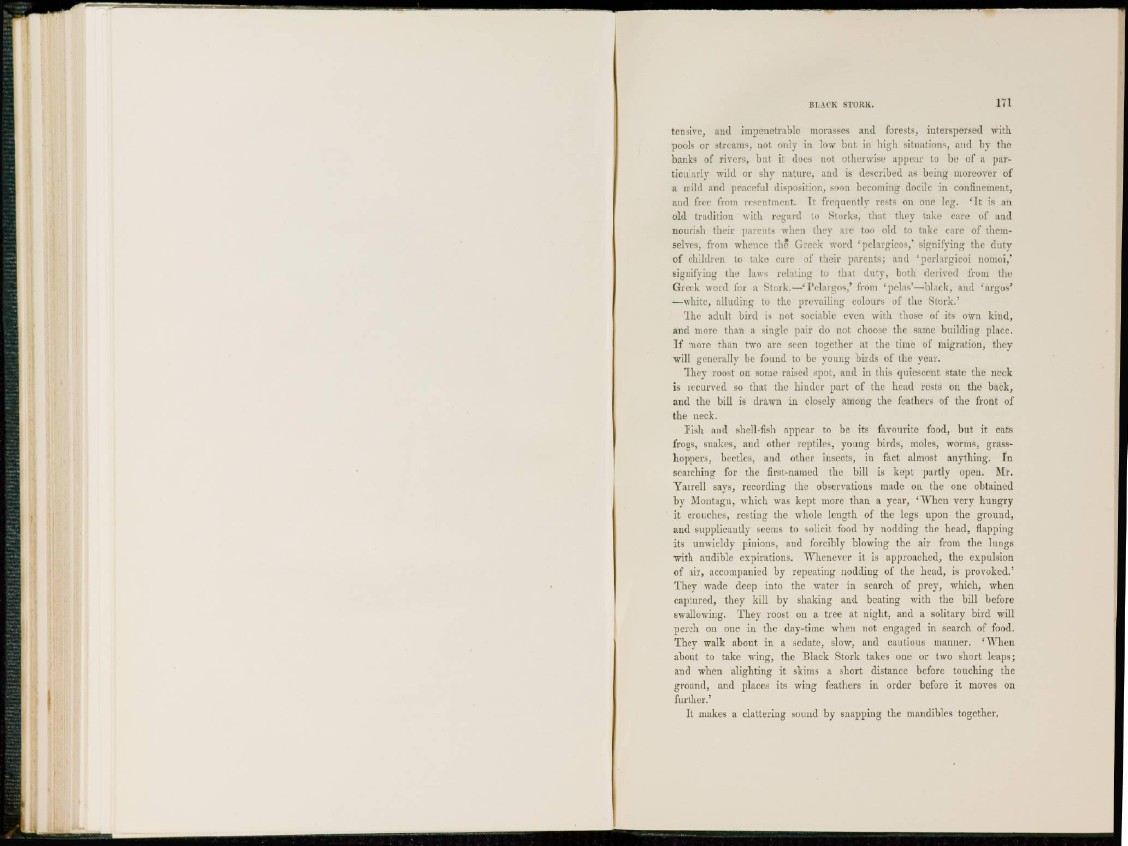
tensive, and impenetrable morasses and forests, interspersed with
pools or streams, not only in low but in high situations, and by the
banks of rivers, but it docs not otherwise appear to be of a particularly
wild or shy nature, and is described as being moreover of
a mild and peaceful disposition, soon becoming docile in confinement,
and free from resentment. It frequently rests on one leg. ' I t is an
old tradition with regard to Storks, that they take care of and
nourish their parents when they are too old to take care of themselves,
from whence the Greek word ' pclargicos,' signifying the duty
of children to take care of their parents; and 'perlargicoi nomoi,'
signifying the laws relating to that duty, both derived from the
Greek word for a Stork.—' l'elargos,' from 'pelas'—black, and 'argos*
—white, alluding to the prevailing colours of the Stork.'
The adult bird is not sociable even with those of its own kind,
and more than a single pair do not choose the same building place.
I f more than two are seen together at the time of migration, they
will generally be found to be young birds of the year.
They roost on some raised spot, and in this quiescent state the neck
is recurved so that the hinder part of the head rests on the back,
and the bill is drawn in closely among the feathers of the front of
the neck.
Fish and shell-fish appear to be its favourite food, but it eats
frogs, snakes, and other reptiles, young birds, moles, worms, grasshoppers,
beetles, and other insects, in fact almost anything. In
searching for the first-named the bill is kept partly open. Mr.
Yarrell says, recording the observations made on the one obtained
by Montagu, which was kept more than a year, ' W h e n very hungry
it crouches, resting the whole length of the legs upon the ground,
and supplicantly seems to solicit food by nodding the head, flapping
its unwieldy pinions, and forcibly blowing the air from the lungs
with audible expirations. Whenever it is approached, the expulsion
of air, accompanied by repeating nodding of the head, is provoked.'
They wade deep into the water in search of prey, which, when
captured, they kill by shaking and beating with the bill before
swallowing. They roost on a tree at night, and a solitary bird will
perch on one in the day-time when not engaged in search of food.
They walk about in a sedate, slow, and cautious manner. 'When
about to take wing, the Black Stork takes one or two short leaps;
and when alighting it skims a short distance before touching the
ground, and places its wing feathers in order before it moves on
further.'
I t makes a clattering sound by snapping the mandibles together.